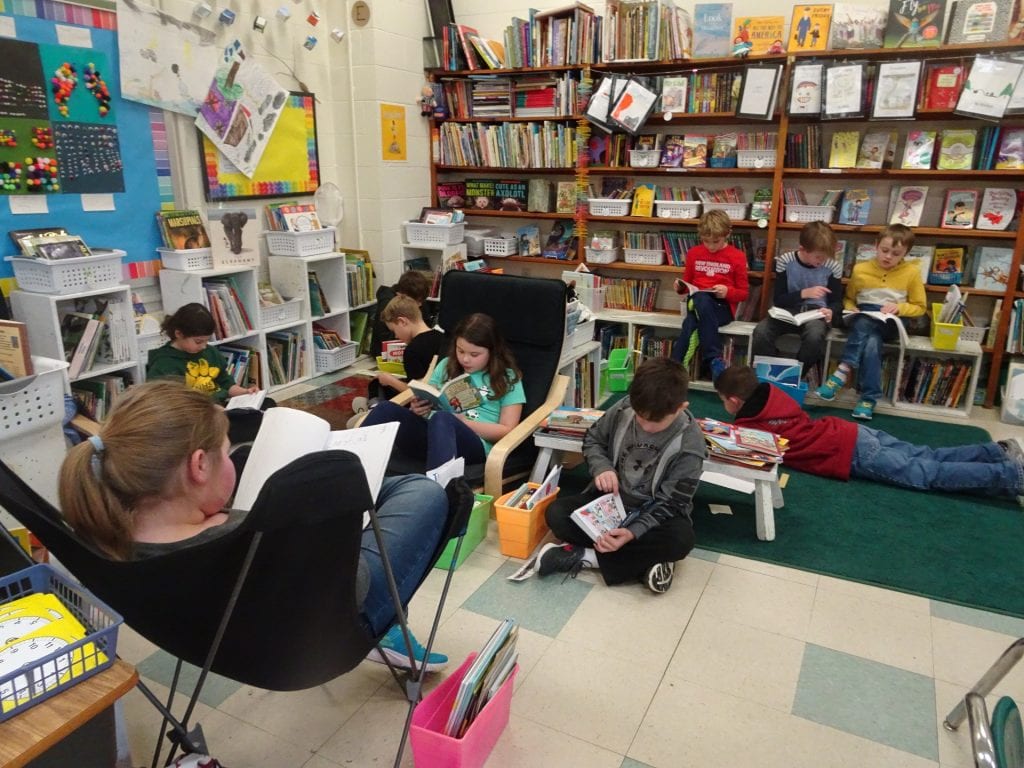 This week we decided to take the opportunity to join with some other classes across the United States and Canada in a project designed to connect us around the idea of Growth Mindset. We’ve only just begun so there is little to report right now. We’re excited about the possibilities. For four weeks we’ll be reading picture books and answering a series of questions. Our goal is to learn more about choosing behaviors and habits that lead to success.
This week we decided to take the opportunity to join with some other classes across the United States and Canada in a project designed to connect us around the idea of Growth Mindset. We’ve only just begun so there is little to report right now. We’re excited about the possibilities. For four weeks we’ll be reading picture books and answering a series of questions. Our goal is to learn more about choosing behaviors and habits that lead to success.
This project connects to the work we did at the beginning of the school year about the Theory of Multiple Intelligence and goal setting. It also connects to our current Open Circle unit about different types of behaviors.
Math and Measurement
Before the break we had been exploring time and solving problems to help us understand how to calculate elapsed time. Over the past two weeks we’ve been exploring money – finding totals and comparing amounts. Both of these measurements have helped us practice multiplication of 5’s and 10’s. We’re getting more efficient in knowing the amounts of halves and quarter hours and dollars as well.
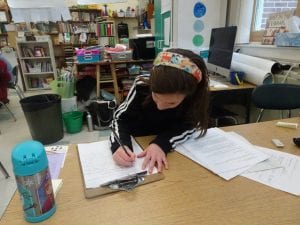 Now we are moving on to linear measurement. We’ll learn about inches, feet and yards. We’ll also explore halves, quarters and eighths of an inch to add to our growing understanding of fractions. I am looking forward to tracking the growth of amaryllis during this measurement unit. I think the kids are going to be amazed. If you have any projects that require measuring, please ask your child to help you out with them. Measuring is always lots of fun, but authentic projects are best.
Now we are moving on to linear measurement. We’ll learn about inches, feet and yards. We’ll also explore halves, quarters and eighths of an inch to add to our growing understanding of fractions. I am looking forward to tracking the growth of amaryllis during this measurement unit. I think the kids are going to be amazed. If you have any projects that require measuring, please ask your child to help you out with them. Measuring is always lots of fun, but authentic projects are best.
National Holiday Celebration
We are wrapping up our study of national holidays. The children are finishing their research and are beginning writing, creating timelines, illustrations and a game to teach others about the national holiday they chose curious research. Through this project, we’ve learned a great deal about our country and its history. It has often been challenging to understand how likelihood for fair treatment and equal opportunity has changed throughout our country’s history. There are some misperceptions. You’ll see that as you view the tri-fold displays the children are putting together. These are honest mistakes. They will open the door to further learning and increased understanding. As with all things, once you begin thinking and wondering about a topic, the more you are able to notice the information that helps you understand. We have a curious class. They are interested in history and in the ways of people.
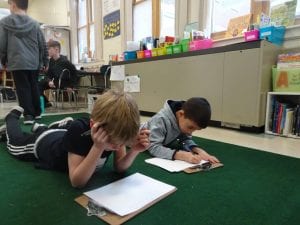 We’re excited to plan our museum event and to name it. Please be on the lookout for an invitation to this event next week so you can be sure to save the date and time. The museum will be open in the afternoon while school is in session and again in the evening so parents can come after school. We realize children have after school commitments and may not be able to attend – but we are hopeful that as many children as possible will be able to present their research and understanding both times that the museum is open. This is an important part of Speaking and Listening and Communicating Learning.
We’re excited to plan our museum event and to name it. Please be on the lookout for an invitation to this event next week so you can be sure to save the date and time. The museum will be open in the afternoon while school is in session and again in the evening so parents can come after school. We realize children have after school commitments and may not be able to attend – but we are hopeful that as many children as possible will be able to present their research and understanding both times that the museum is open. This is an important part of Speaking and Listening and Communicating Learning.
Reading Comprehension Strategies
This week we’ve begun The Great Sasquatch Escape– the first book in the Imaginary Veterinary series. We’ve also begun the daily practice of keeping track of the important events from each chapter. We are using what we’ve learned about Narrative Story Arcs in writing to discover what part of this read-aloud story we are in: Beginning (introductions of setting characters and the inciting event), Rising Action, Middle, Climax, Resolving Action, or End (the problems is solved and we learn how the characters have changed). During read aloud the children are creating quick sketches of important events and/or listing things they feel are important to remember.
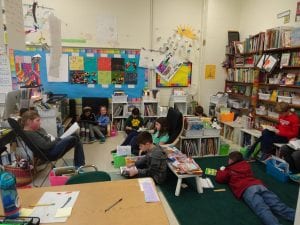 At this point in the story it is relatively easy to recognize what is important. There have only been a few extra details, but they will grow and we will learn more about the choices authors make by examining them.
At this point in the story it is relatively easy to recognize what is important. There have only been a few extra details, but they will grow and we will learn more about the choices authors make by examining them.
Elaboration Strategies and Writing
Last week we began learning about four different types of elaboration strategies. Over the course of the last two weeks we’ve had the opportunity to practice developing description, adding action, inventing realistic dialogue and adding emotion by including inner (unspoken) thoughts and feelings. Thanks to Melanie Meehan and the lessons she shared on her blog, we were able to learn how to add more interest and vitality to our writing. More and more of the children are trying to include at least two elaboration strategies on every page of their writing this week. Some of them have even tried to use all four strategies on every page. They are beginning to realize that using these strategies communicates more of what they’ve thought and imagined with their readers. Writing is a dynamic process. I am proud of the effort many these 3rdgrade writers are making to intentionally improve the quality of their writing.
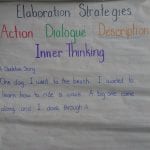
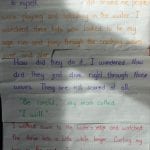
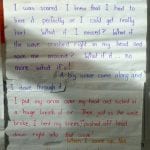
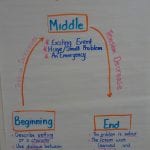
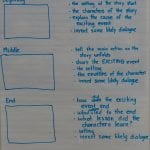
Bits and Pieces –
- Each week the children work to add to their blogs. Some of them finish a post in one week – others do not, as is expected. Thank you for your continued attention to their blogs and the tine you take to leave comments. It is greatly appreciated. Jack has been blogging from Colorado and we’re excited to look for his posts every week too.
- Most of the class began their plan for the “family story” they will write based on their interview. This will be a first opportunity to apply their independent understanding the elaboration strategies.
- We completed our season pros and cons exploration. This exploration has been designed to give the children ideas for their first persuasive writing piece.
- We will not have our challenge with Mr. Guidi next week on January 16th. He is attending a professional workshop.
- Cursive begins next week!
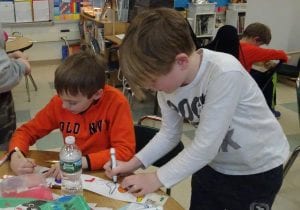
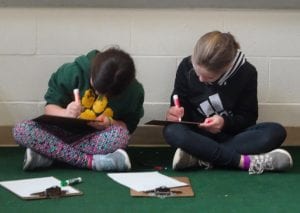 Friends work together and play together. Friends share with each other and treat each other with respect. Friends are fun to be around. Friends – how can you make them? How can you keep them? Friendship is fun, interesting and sometimes challenging. What do you think about being a friend? When is it easy? When is it hard?
Friends work together and play together. Friends share with each other and treat each other with respect. Friends are fun to be around. Friends – how can you make them? How can you keep them? Friendship is fun, interesting and sometimes challenging. What do you think about being a friend? When is it easy? When is it hard?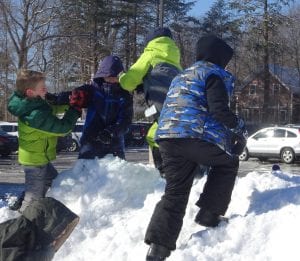 Since we know about four different elaboration strategies, show you know how to use them when you write. Your blog posts will reach out for comments when you do.
Since we know about four different elaboration strategies, show you know how to use them when you write. Your blog posts will reach out for comments when you do.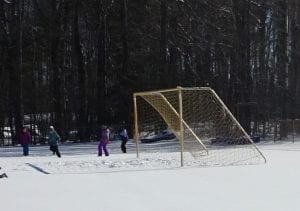 Other…
Other…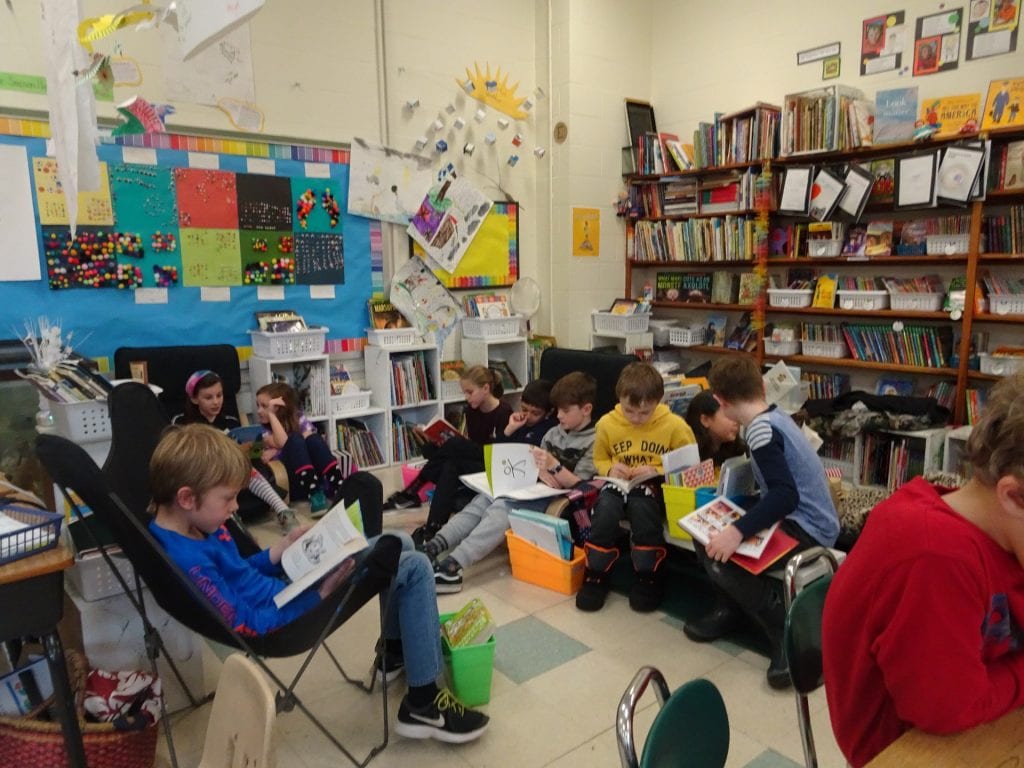 Doesn’t it seem as though we just returned to school from our holiday break? Here we are nearing the end of January and approaching our 100thday of school! Holy-Moly – time flies by so quickly
Doesn’t it seem as though we just returned to school from our holiday break? Here we are nearing the end of January and approaching our 100thday of school! Holy-Moly – time flies by so quickly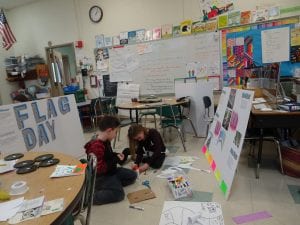 I trust that you received your invitation (save one due to an absence) and have been able to save the date and time for our holiday celebration.
I trust that you received your invitation (save one due to an absence) and have been able to save the date and time for our holiday celebration. 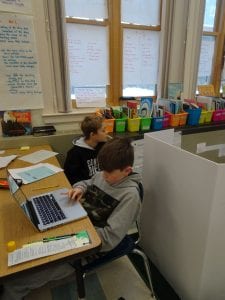 have the expectations for both the displays and their games. It is interesting to watch how differently each student approaches his or her work. Some of the children gather all the pieces – the paragraphs about the history of the holiday, why it is celebrated and how it’s observance has changed over time, fun facts, their timeline and illustrating images first before creating. Others begin creating right away and get lost in the process. As they pick up, they realize they’ve forgotten what their research questions were or to plan how the game will teach players about their holiday. Regardless of their approach, the class is excited about the event and the opportunity to share what they have learned.
have the expectations for both the displays and their games. It is interesting to watch how differently each student approaches his or her work. Some of the children gather all the pieces – the paragraphs about the history of the holiday, why it is celebrated and how it’s observance has changed over time, fun facts, their timeline and illustrating images first before creating. Others begin creating right away and get lost in the process. As they pick up, they realize they’ve forgotten what their research questions were or to plan how the game will teach players about their holiday. Regardless of their approach, the class is excited about the event and the opportunity to share what they have learned.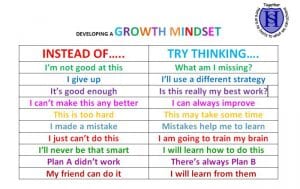 We continued to sort behaviors and have had some important discussions about who is the most important one in a relationship – is it you or the person you are with. I think we’ve decided, that though it isn’t always easy, if we think we should be more aware of the other person and helping him/her feel happy and supported. It seems as though everyone is happier that way. We’ve talked about name-calling and teasing. One of the situations a student wrote was about having someone say, “You’re such a jerk.” We had a great discussion about that. We decided that before we called it bad or
We continued to sort behaviors and have had some important discussions about who is the most important one in a relationship – is it you or the person you are with. I think we’ve decided, that though it isn’t always easy, if we think we should be more aware of the other person and helping him/her feel happy and supported. It seems as though everyone is happier that way. We’ve talked about name-calling and teasing. One of the situations a student wrote was about having someone say, “You’re such a jerk.” We had a great discussion about that. We decided that before we called it bad or 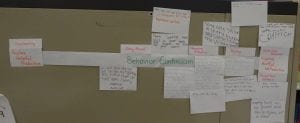 good we’d need to know what happened before it was said. What happens if it was said to protect someone who was being picked on? Is it different if it is an argument between siblings? We’ve been talking more about positive self-talk too. We’ve decided that we’ll see if we can find a way to remind ourselves to refer the “Developing a Growth Mindset” chart in our classroom more often. We’ll try to look for the silver lining, because it’s always a little easier to succeed when we’re feeling positive.
good we’d need to know what happened before it was said. What happens if it was said to protect someone who was being picked on? Is it different if it is an argument between siblings? We’ve been talking more about positive self-talk too. We’ve decided that we’ll see if we can find a way to remind ourselves to refer the “Developing a Growth Mindset” chart in our classroom more often. We’ll try to look for the silver lining, because it’s always a little easier to succeed when we’re feeling positive.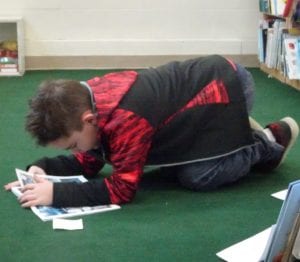 This week we’ve been thinking more about what makes a complete summary. We know that a summary is a shortened version of what we’ve read and tells the basic ideas from the reading. We’ve been following a five-step guideline for summarizing fiction.
This week we’ve been thinking more about what makes a complete summary. We know that a summary is a shortened version of what we’ve read and tells the basic ideas from the reading. We’ve been following a five-step guideline for summarizing fiction. 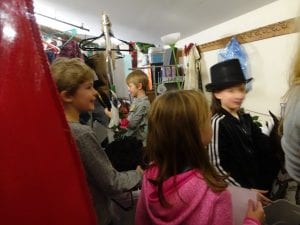 Thank you to Mrs. Zavez for helping us gather supplies for our Holiday Palooza hallway introduction. What fun!
Thank you to Mrs. Zavez for helping us gather supplies for our Holiday Palooza hallway introduction. What fun!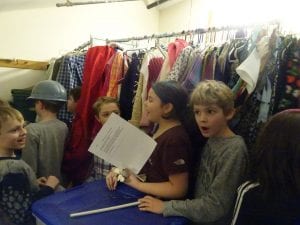 We’ll be finishing The Great Sasquatch Escapenext week. We plan to create a map of Buttonville that pops out from the wall and shows where some of our favorite scenes from the book happen.
We’ll be finishing The Great Sasquatch Escapenext week. We plan to create a map of Buttonville that pops out from the wall and shows where some of our favorite scenes from the book happen. Today first grade launched their annual 100thDay Food Drive for Gather (formally the Seacoast Food Pantry.) Be on the look out today for the notice about what 3rdgrade is being asked to donate. Today is our 91stday of school so we only have two weeks to make sure we collect 100 of our item.
Today first grade launched their annual 100thDay Food Drive for Gather (formally the Seacoast Food Pantry.) Be on the look out today for the notice about what 3rdgrade is being asked to donate. Today is our 91stday of school so we only have two weeks to make sure we collect 100 of our item.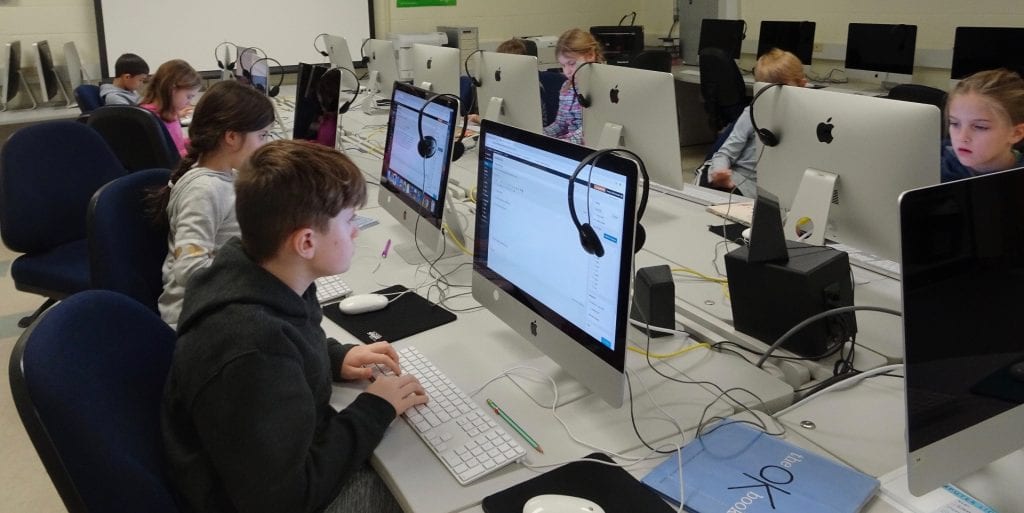
 This is the 3rd week of the Growth Mindset Read-Aloud project. We’ve had some technology challenges in our classroom that wouldn’t allow us to connect with the video and the online conversation about
This is the 3rd week of the Growth Mindset Read-Aloud project. We’ve had some technology challenges in our classroom that wouldn’t allow us to connect with the video and the online conversation about 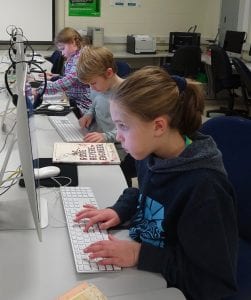 After we read
After we read 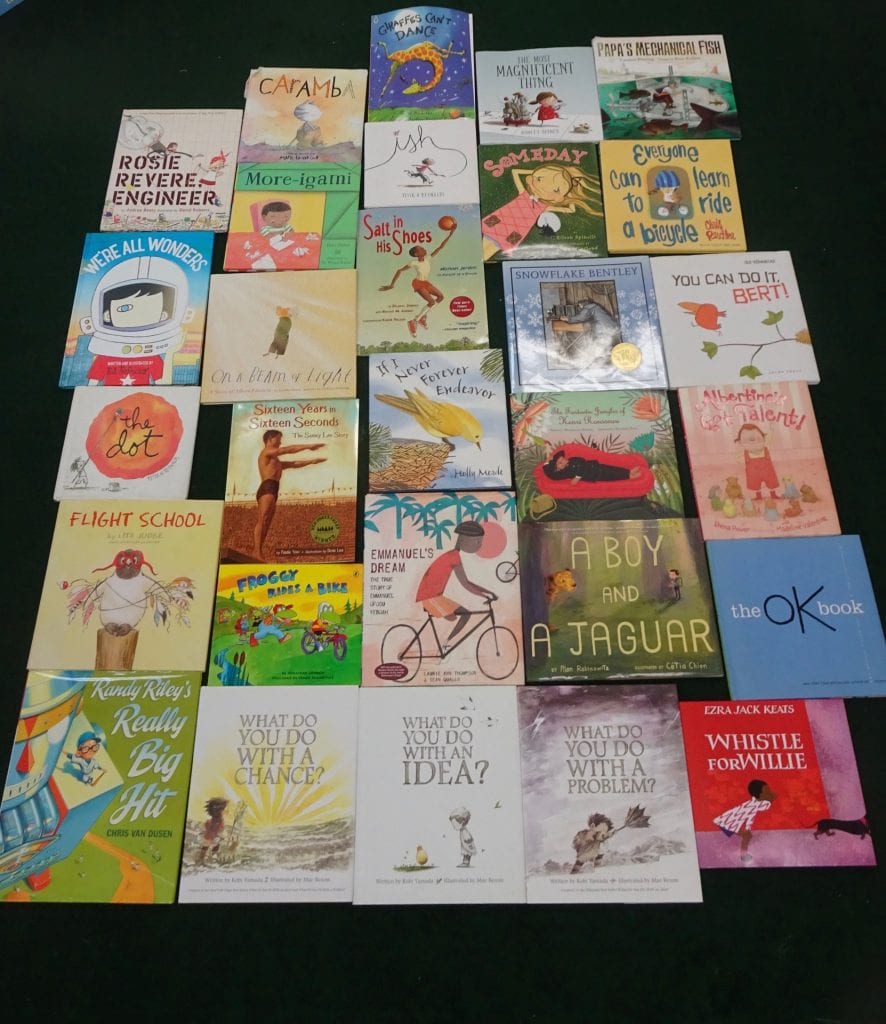
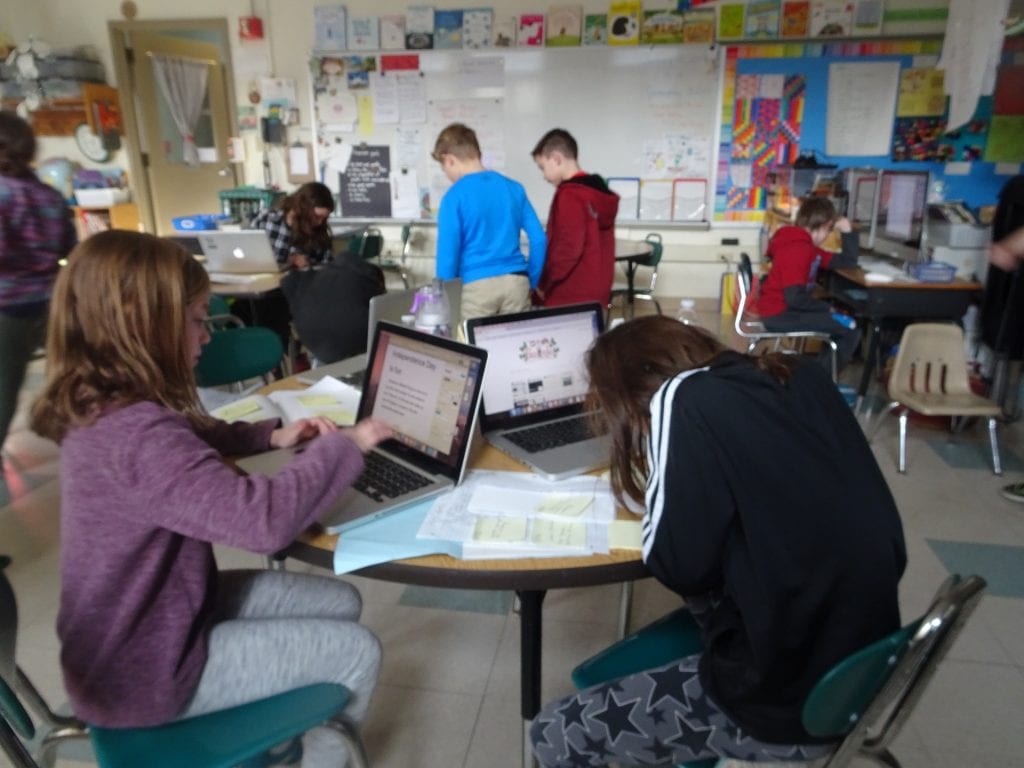 We’ve been enjoying The Great Sasquatch Escape and learning how to identify main idea. We’ve begun to explore global geography and to think about how interesting people are in all parts of the world. We’re working to put together our national holiday research into interesting and informative presentations and games. We’re learning about fractions and measurement. We’re organizing our family stories and learning how to use elaboration strategies to add interest to our writing. There’s a lot going on in 3E.
We’ve been enjoying The Great Sasquatch Escape and learning how to identify main idea. We’ve begun to explore global geography and to think about how interesting people are in all parts of the world. We’re working to put together our national holiday research into interesting and informative presentations and games. We’re learning about fractions and measurement. We’re organizing our family stories and learning how to use elaboration strategies to add interest to our writing. There’s a lot going on in 3E.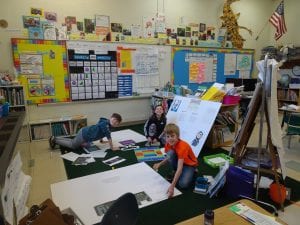 This week we chose the name for the event (see above) where we would share what we’ve been learning about our country’s nine national holidays. We chose the day, Monday, February 4 and the times 2:00 – 2:40 and 5:15 to 6:00. We hope everyone in the class will be able to attend at both times to share his/her thinking and learning. We understand that the later time may be challenging for some families – we hope you’ll be able to fit this event into your full schedules. Please look in the front of your child’s folder for your personal invitation.
This week we chose the name for the event (see above) where we would share what we’ve been learning about our country’s nine national holidays. We chose the day, Monday, February 4 and the times 2:00 – 2:40 and 5:15 to 6:00. We hope everyone in the class will be able to attend at both times to share his/her thinking and learning. We understand that the later time may be challenging for some families – we hope you’ll be able to fit this event into your full schedules. Please look in the front of your child’s folder for your personal invitation.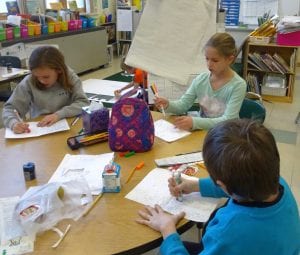 This project has been challenging. Some of the holidays are rather obscure, while others require a lot of background knowledge to fully understand. That is something 9-year olds don’t have unless they’ve listened to lots of family stories or are historical fiction readers. I know I’ve written about this before, but I want you to be ready for what you read and see when you attend the palooza. The facts tend to be sparse and some are misrepresented, but all has been written with their best effort to connect to the information and understand.
This project has been challenging. Some of the holidays are rather obscure, while others require a lot of background knowledge to fully understand. That is something 9-year olds don’t have unless they’ve listened to lots of family stories or are historical fiction readers. I know I’ve written about this before, but I want you to be ready for what you read and see when you attend the palooza. The facts tend to be sparse and some are misrepresented, but all has been written with their best effort to connect to the information and understand.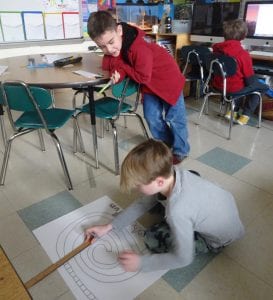 As you tour the children’s displays and play their games, please keep this in mind. I think it will be exciting for them when they explore more US history in fifth grade. Then they’ll really put all the pieces together.
As you tour the children’s displays and play their games, please keep this in mind. I think it will be exciting for them when they explore more US history in fifth grade. Then they’ll really put all the pieces together.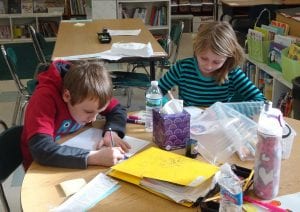 We’ve been learning how to read measurement and to write mixed numbers in the proper way. It seems as though most of the class has mastered that. We are also learning by example how 2/8 equal ¼ and how 4/8 and 2/4 equal ½. It’s fun to learn about fractions and part of a whole. We’re learning that sometimes a fraction is one thing cut into smaller equal parts and sometimes a fraction represents a smaller portion of a group. For example, if a class has 16 kids and we say ¼ of the class played on the swings at recess we can figure out that 4 kids were on the swings. We’ve discovered when we work to answer questions like that we are also learning about division.
We’ve been learning how to read measurement and to write mixed numbers in the proper way. It seems as though most of the class has mastered that. We are also learning by example how 2/8 equal ¼ and how 4/8 and 2/4 equal ½. It’s fun to learn about fractions and part of a whole. We’re learning that sometimes a fraction is one thing cut into smaller equal parts and sometimes a fraction represents a smaller portion of a group. For example, if a class has 16 kids and we say ¼ of the class played on the swings at recess we can figure out that 4 kids were on the swings. We’ve discovered when we work to answer questions like that we are also learning about division.
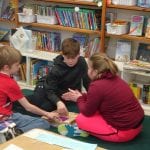 We’ve participated in the second week of the Growth Mindset Read-Aloud Project. We hope to get lots more comments on our blogs through these connections.
We’ve participated in the second week of the Growth Mindset Read-Aloud Project. We hope to get lots more comments on our blogs through these connections.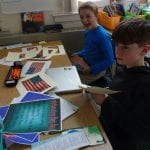 see different houses, traditional clothing, foods and even different school experiences. It is amazing to realize how diverse and wonderful the world is.
see different houses, traditional clothing, foods and even different school experiences. It is amazing to realize how diverse and wonderful the world is.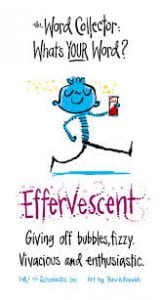 We’ve been exploring Growth Mindset. Jerome had a passion for words that he shared with the world. Mindful the monkey asked for help when he realized his problem was too big to solve on his own. Dizzy the dolphin chose to care about others. Saul didn’t give up on his dream. He was an unusual pirate, but he did have his own special flair. Using
We’ve been exploring Growth Mindset. Jerome had a passion for words that he shared with the world. Mindful the monkey asked for help when he realized his problem was too big to solve on his own. Dizzy the dolphin chose to care about others. Saul didn’t give up on his dream. He was an unusual pirate, but he did have his own special flair. Using 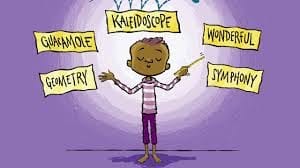 these book characters as mentors, think about strategies you might offer others who are working through challenging situations, learning something new or dealing with friends. How can we keep a positive attitude when trying new things? What choices do you make when you are learning something that really matters to you? Maybe this week’s blog prompts will help you discover some new ideas that help you become more confident and willing push yourself to do more.
these book characters as mentors, think about strategies you might offer others who are working through challenging situations, learning something new or dealing with friends. How can we keep a positive attitude when trying new things? What choices do you make when you are learning something that really matters to you? Maybe this week’s blog prompts will help you discover some new ideas that help you become more confident and willing push yourself to do more.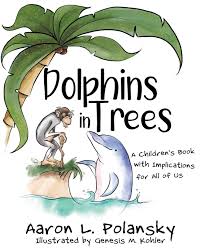 Has there ever been something that you were not good at in the beginning, but then through practice you became good at it? Tell your story.
Has there ever been something that you were not good at in the beginning, but then through practice you became good at it? Tell your story.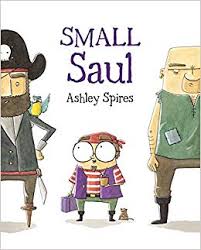 Check our blogs to find out which prompts we chose. Please leave a comment when you do.
Check our blogs to find out which prompts we chose. Please leave a comment when you do.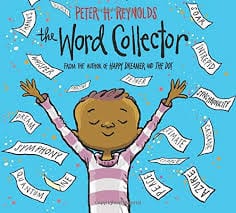 We are excited to join a Growth Mind Set Read Aloud Project developed by a teacher at the Louis Riel School Division in Winnipeg, Manitoba. Annick Rauch is the teacher of a 1/2 classroom in a French Immersion school. We are looking forward to connecting with students in other places around the globe. During the first week we read
We are excited to join a Growth Mind Set Read Aloud Project developed by a teacher at the Louis Riel School Division in Winnipeg, Manitoba. Annick Rauch is the teacher of a 1/2 classroom in a French Immersion school. We are looking forward to connecting with students in other places around the globe. During the first week we read  What word could Jerome find to go into a “Growth Mindset” scrapbook?
What word could Jerome find to go into a “Growth Mindset” scrapbook?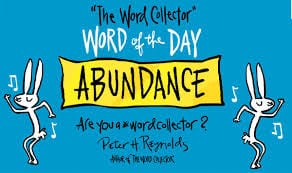
 This week we decided to take the opportunity to join with some other classes across the United States and Canada in a project designed to connect us around the idea of Growth Mindset. We’ve only just begun so there is little to report right now. We’re excited about the possibilities. For four weeks we’ll be reading picture books and answering a series of questions. Our goal is to learn more about choosing behaviors and habits that lead to success.
This week we decided to take the opportunity to join with some other classes across the United States and Canada in a project designed to connect us around the idea of Growth Mindset. We’ve only just begun so there is little to report right now. We’re excited about the possibilities. For four weeks we’ll be reading picture books and answering a series of questions. Our goal is to learn more about choosing behaviors and habits that lead to success. Now we are moving on to linear measurement. We’ll learn about inches, feet and yards. We’ll also explore halves, quarters and eighths of an inch to add to our growing understanding of fractions. I am looking forward to tracking the growth of amaryllis during this measurement unit. I think the kids are going to be amazed. If you have any projects that require measuring, please ask your child to help you out with them. Measuring is always lots of fun, but authentic projects are best.
Now we are moving on to linear measurement. We’ll learn about inches, feet and yards. We’ll also explore halves, quarters and eighths of an inch to add to our growing understanding of fractions. I am looking forward to tracking the growth of amaryllis during this measurement unit. I think the kids are going to be amazed. If you have any projects that require measuring, please ask your child to help you out with them. Measuring is always lots of fun, but authentic projects are best. We’re excited to plan our museum event and to name it. Please be on the lookout for an invitation to this event next week so you can be sure to save the date and time. The museum will be open in the afternoon while school is in session and again in the evening so parents can come after school. We realize children have after school commitments and may not be able to attend – but we are hopeful that as many children as possible will be able to present their research and understanding both times that the museum is open. This is an important part of Speaking and Listening and Communicating Learning.
We’re excited to plan our museum event and to name it. Please be on the lookout for an invitation to this event next week so you can be sure to save the date and time. The museum will be open in the afternoon while school is in session and again in the evening so parents can come after school. We realize children have after school commitments and may not be able to attend – but we are hopeful that as many children as possible will be able to present their research and understanding both times that the museum is open. This is an important part of Speaking and Listening and Communicating Learning. At this point in the story it is relatively easy to recognize what is important. There have only been a few extra details, but they will grow and we will learn more about the choices authors make by examining them.
At this point in the story it is relatively easy to recognize what is important. There have only been a few extra details, but they will grow and we will learn more about the choices authors make by examining them.




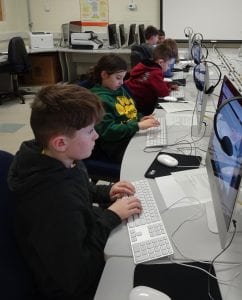 We are about to begin a study of maps and different places in the world. This week’s prompts are designed to help us think about where we’ve already traveled and places we’d like to learn more about.
We are about to begin a study of maps and different places in the world. This week’s prompts are designed to help us think about where we’ve already traveled and places we’d like to learn more about.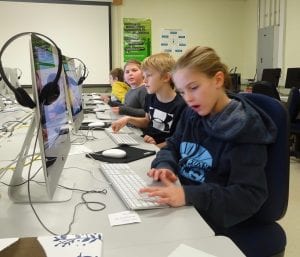 What is the best vacation you’ve ever been on? Who were you with, where did you travel to, what were some of the sights you saw? Write down all the details you can remember.
What is the best vacation you’ve ever been on? Who were you with, where did you travel to, what were some of the sights you saw? Write down all the details you can remember.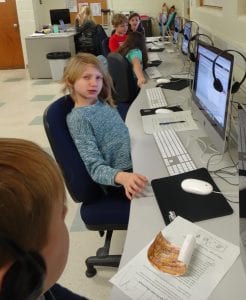
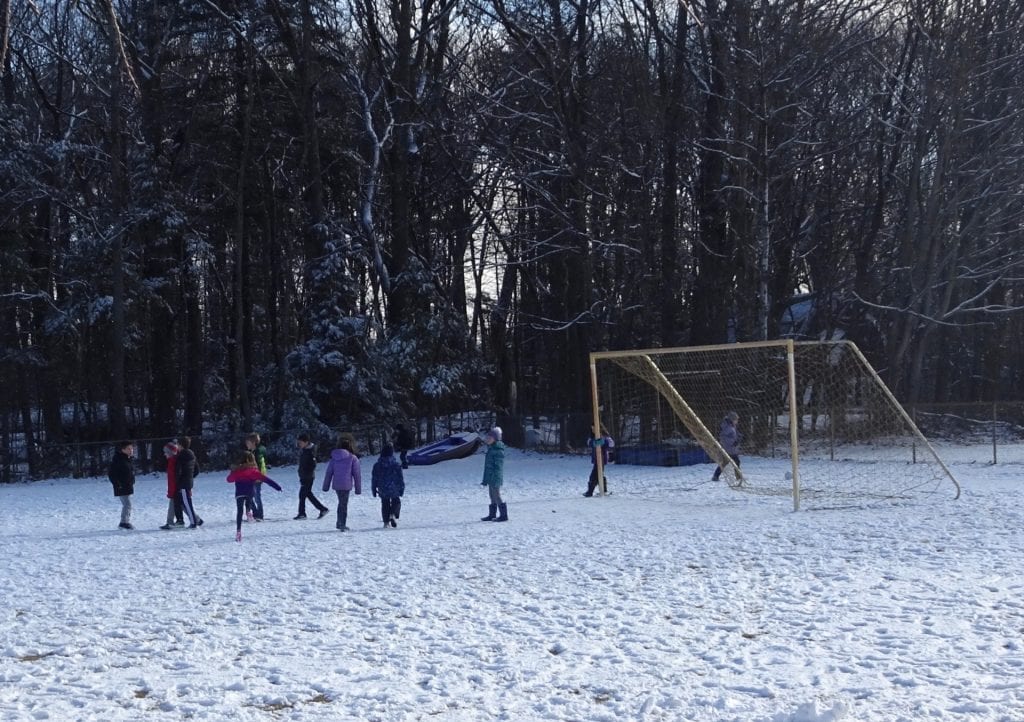
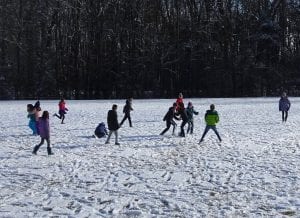
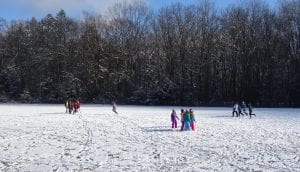 I hope you each had a wonderful break. Judging from the bits and pieces I’ve heard from the children, it seems as though you did. Thank you for your time and attention with the family stories project. We appreciate the support you offered the children in conducting their interviews and gathering information that will soon be turned into stories. We will begin that writing process on Tuesday – hopefully that will be enough time for everyone to collect their information.
I hope you each had a wonderful break. Judging from the bits and pieces I’ve heard from the children, it seems as though you did. Thank you for your time and attention with the family stories project. We appreciate the support you offered the children in conducting their interviews and gathering information that will soon be turned into stories. We will begin that writing process on Tuesday – hopefully that will be enough time for everyone to collect their information.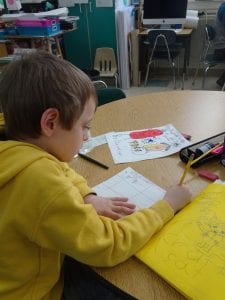 We’ve continued to explore the elements within a narrative story arc. This week we’ve learned different ways for making our writing even more interesting and detailed. We’re exploring four elaboration strategies: description (We’re trying to use what we’ve learned previously about adjectives, adverbs and the power of 3.), action, dialogue and inner thought.
We’ve continued to explore the elements within a narrative story arc. This week we’ve learned different ways for making our writing even more interesting and detailed. We’re exploring four elaboration strategies: description (We’re trying to use what we’ve learned previously about adjectives, adverbs and the power of 3.), action, dialogue and inner thought.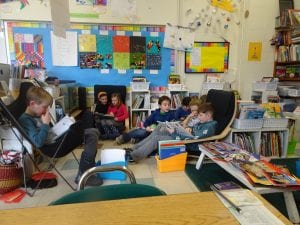 This Open Circle unit helps us think about different types of social problems. It helps us practice positive ways of dealing with them. Over then next few weeks, we’ll be defining annoying, helpful, disruptive and respectful behaviors. We’ll continue conversations about self-management and create strategies to help us behave responsibly and respectfully more than we do now by thinking more of the consequences of our actions. Ella introduced us to the “butterfly effect” at the beginning of the year. It’s time to consider this idea again to see how it can help us make different behavior choices to support growth and learning.
This Open Circle unit helps us think about different types of social problems. It helps us practice positive ways of dealing with them. Over then next few weeks, we’ll be defining annoying, helpful, disruptive and respectful behaviors. We’ll continue conversations about self-management and create strategies to help us behave responsibly and respectfully more than we do now by thinking more of the consequences of our actions. Ella introduced us to the “butterfly effect” at the beginning of the year. It’s time to consider this idea again to see how it can help us make different behavior choices to support growth and learning.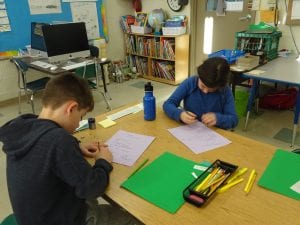 Just before the break we explored the idea of estimation and how the skill develops. We learned about rounding to the nearest 10 and the nearest 100. Rounding is a type of estimation and we thought about how this concept could help us every day. We might be able to reduce waste. We might use time more effectively.
Just before the break we explored the idea of estimation and how the skill develops. We learned about rounding to the nearest 10 and the nearest 100. Rounding is a type of estimation and we thought about how this concept could help us every day. We might be able to reduce waste. We might use time more effectively.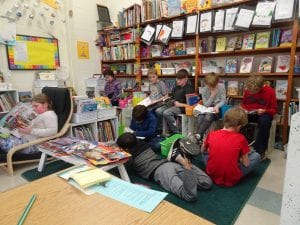 Mr. Guidi’s challenge this week helped us practice cooperation and develop our communication skills.
Mr. Guidi’s challenge this week helped us practice cooperation and develop our communication skills.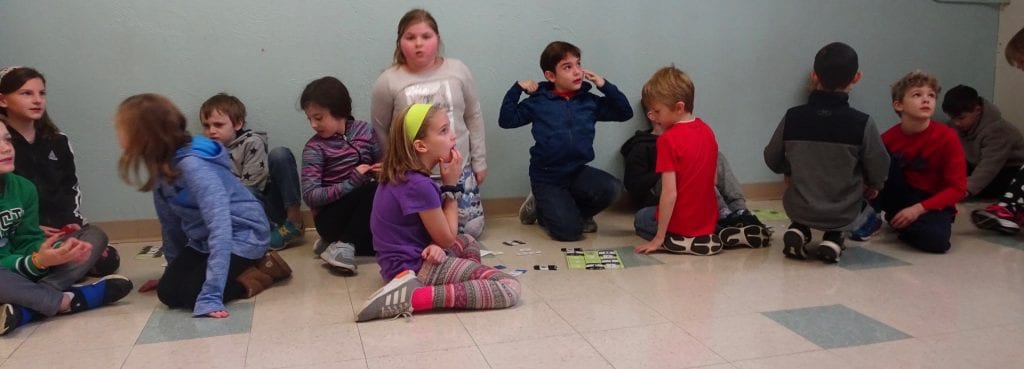
 Happy New Year! This week’s prompts look back and then ahead. Will you save a memory or look forward to something new?
Happy New Year! This week’s prompts look back and then ahead. Will you save a memory or look forward to something new?